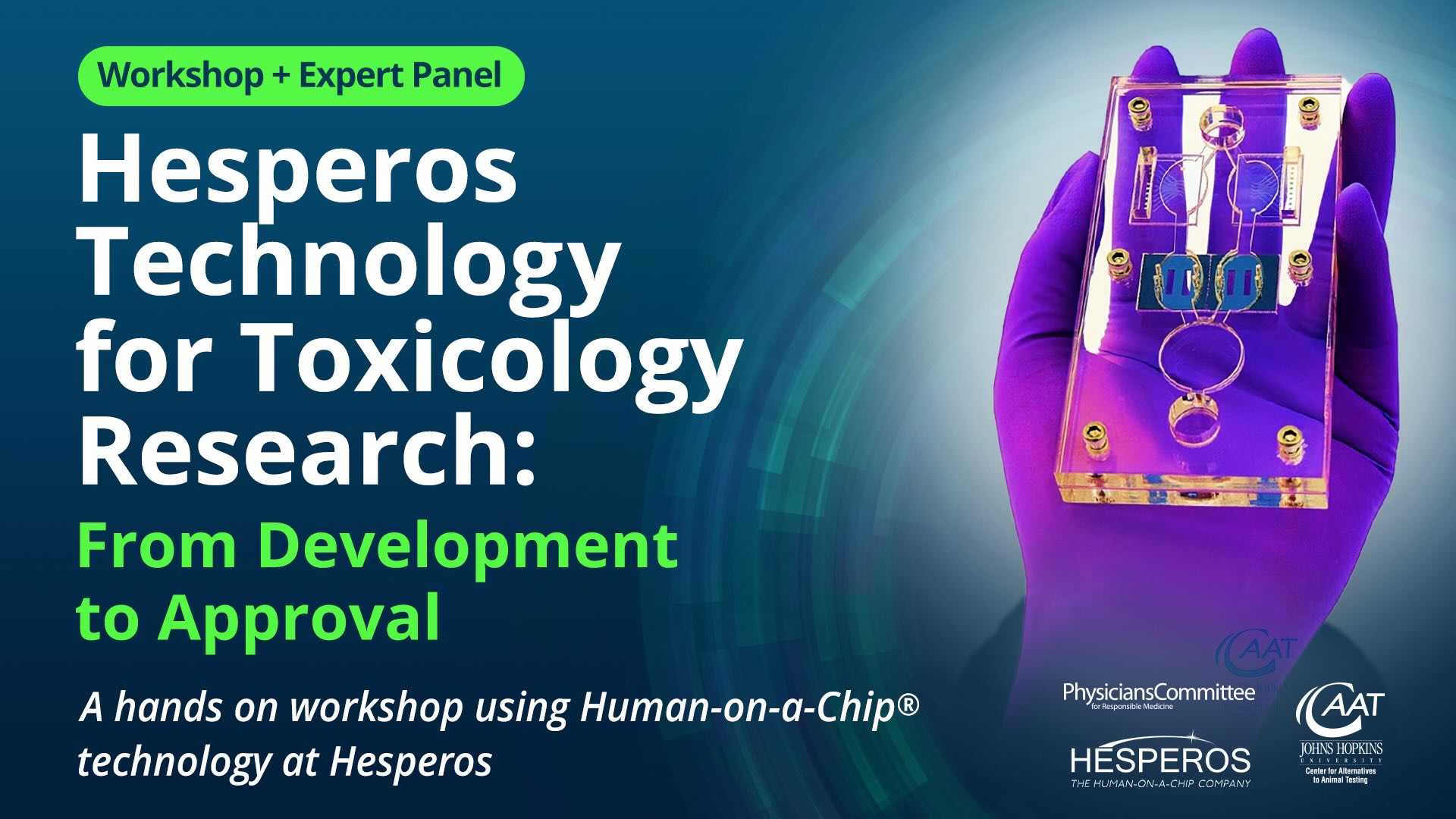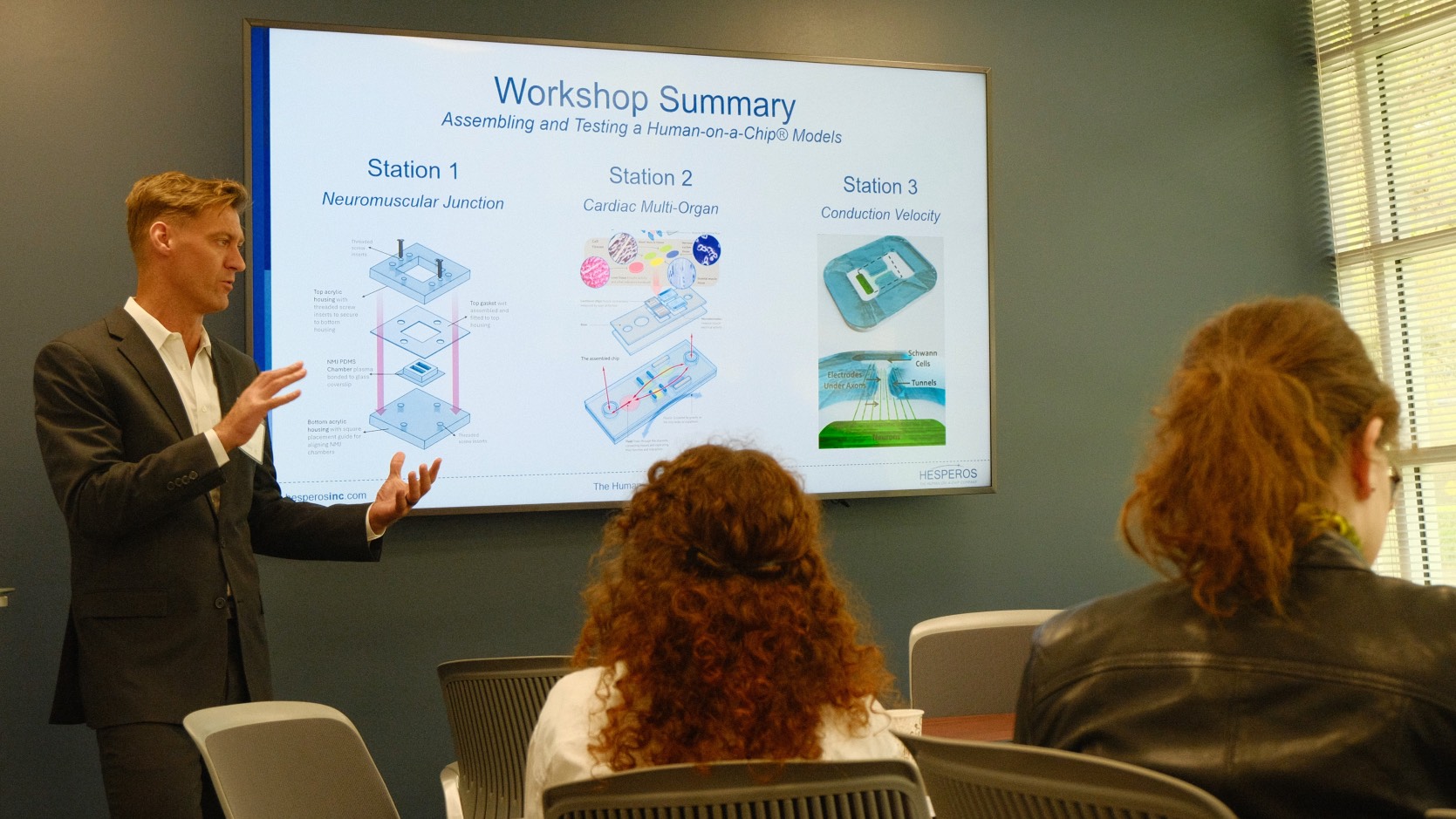Physicians Committee Teams Up With Human-on-a-Chip Company for Hands-On Training Event

Earlier this month, Physicians Committee experts traveled to Orlando, Florida, to attend the Society of Toxicology Annual Meeting (SOT) as part of our work to accelerate the replacement of animal testing in toxicology. To kick off the meeting, the Physicians Committee hosted an exciting hands-on event with Hesperos, a human-on-a-chip biotechnology company, and the Johns Hopkins Center for Alternatives to Animal Testing.
On March 16th, the Physicians Committee gathered SOT attendees from around the globe at the state-of-the-art Hesperos facility. This educational event, Hesperos Technology for Toxicology Research: From Development to Approval, provided a rare, hands-on experience for participants to tour the facility and spend time in the lab assembling and testing human-on-a-chip models. Hesperos staff who work with the models every day guided participants through three hands-on rotations.
Following time in the lab, there was a panel discussion featuring three leaders in the field. Dr. Thomas Hartung, director of the Johns Hopkins Center for Alternatives to Animal Testing, spoke on the current state of toxicology; Elizabeth Baker, director of research policy at the Physicians Committee, discussed policy considerations for nonanimal methods in toxicity testing; and Dr. J. Hickman, co-founder and chief scientist at Hesperos, explained the path to FDA approval for their technology.
Toxicology is the study of safety and toxicity of products like pharmaceuticals, cosmetics, chemicals, and pesticides. Traditional toxicological research requires subjecting animals to cruel experiments in an attempt to understand what may happen should a human be exposed to a chemical or take a new drug. Fortunately, there are many human-based, nonanimal methods—like Hesperos’ human-on-a-chip models—that use human cells and tissues to model human biology, as well as predict human responses and risk, more accurately than animal tests. The Physicians Committee supports the development and use of these nonanimal methods, along with policy change to reduce barriers and increase their uptake, and education and outreach to make more scientists aware of their advantages over animal tests.
The SOT Annual Meeting brings together researchers, industry leaders, and regulatory experts to discuss toxicological approaches, including nonanimal methods. While interest in nonanimal methods at large-scale meetings like SOT is increasing, many scientists and regulators may not have access to hands-on training to learn about the technology. Events like the one we held at Hesperos offer a unique experience to bring much-needed exposure to and experience with animal-free options for toxicity testing.
For regulatory scientists who are unable to attend in-person events, the Physicians Committee’s NURA program increases accessibility of human-based toxicological methods by providing free, on-demand training for anyone around the world.
The positive feedback from this event reflects the growing interest scientists have in nonanimal methods and how eager the developers of these methods are to help researchers adopt them. The Physicians Committee will continue to raise awareness about human-based models and educate the research community about their many benefits over animals.









